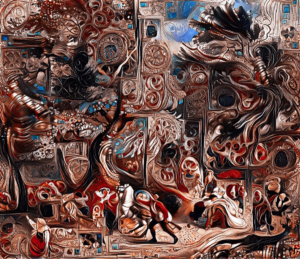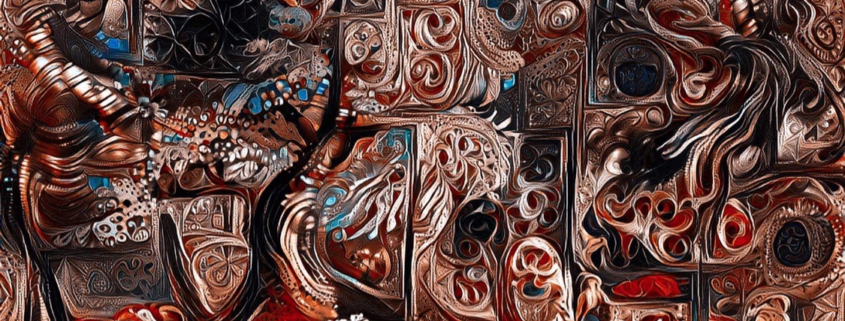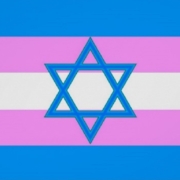Ordering for Humanity
 On Purim we embrace the disorder of the ונהפוך הוא, v’nahafoch hu,[1] as a way of informing and preparing for the ideal reordering of society on Passover’s Leil Seder, literally the night of order.
On Purim we embrace the disorder of the ונהפוך הוא, v’nahafoch hu,[1] as a way of informing and preparing for the ideal reordering of society on Passover’s Leil Seder, literally the night of order.
While on Purim we are meant to celebrate[2] “עַד דְּלָא יָדַע”[3] “until we don’t know the difference” between cursed is Haman and blessed is Mordecai, on Passover we already know how to answer each child appropriately, and the questions that they will ask before they do. We even extend our confidence to the significance of the order of numbers. We sing “Who knows one?” because we know what is first, and what comes next. Everything and everyone belongs, and has its place.
In order to understand the best way to be, we must first acknowledge that we haven’t yet figured it out. It is particularly in the external, finite spaces, that we are overly confident of what we think we know. We assume there are constraints[4] that prevent a sustainable model of universal coexistence and equality, but it is only our knowledge that has its limits.[5]
When Moses approaches the burning bush he can’t understand how it isn’t consumed.[6] G-d instructs him to remove his shoes as a way of indicating the limitations of interfacing with this world through the usual external tools. Moshe, in recognizing that he “didn’t know”, merited to learn from the infinite.
Purim is a language of פרוד, separation, as Haman, a descendant of Amalek, describes the Jewish people: עם אחד מפוזר ומפורד בין העמים – a people separated and scattered among the nations.” The verse hints that the essence of our identity is one of unity, being a nation of oneness, while acknowledging the reality of our current state of division. It is that disconnection that prevents us from knowing even that which is directly in front of us.
The Israelites are only in Egypt because Joseph’s brothers hated him and exiled him through slavery. While Joseph was searching to be one among his brothers, אַחַ֖י אָנֹכִ֣י מְבַקֵּ֑שׁ,[7] they were jealous of him וַיְקַנְאוּ־ב֖וֹ אֶחָ֑יו,[8] and certainly didn’t treat him like family. A consequence of that othering was the inability to see him as their brother, both when they sold him and when they were reunited.
In Midrash Rabbah[9] we find that Joseph went to great lengths to reveal his identity, unsuccessfully. Despite his investment in organization, his brothers’ commitment to their false narrative of their proper placement in the world prevented them from seeing what Joseph was trying to reveal to them; similar to when he shared his dreams with them as a teenager.
Ordering things, when they are not in conscious relationship with each other, is not revelatory:
“Joseph would strike his goblet and call out “Reuven, Simeon, Levi, Judah, Issachar, and Zebulun – sons of one mother, recline in this order – הסבו כסדר הזה, for it is the order of your births.” So it was for all of the brothers. Once he reached Benjamin, he said “This one has no mother, and I have no mother. Let him sit next to me.”
In the next verse the brothers continue to miss another siman, sign, laid out by Joseph:[10] “He passed portions from before him to them, and Benjamin’s portion was greater than the portions of all of them; fivefold. They drank and they imbibed with him”. The Talmud,[11] concerned how Joseph could repeat the act of his father by favoring one of them through clothing, explains that he intimated to Benjamin that his descendent [Mordecai] would go out before the king in five royal garments.[12]
Focusing on the externality of humanity internalizes, and reinforces, our prioritization of the superficial and restrictive aspects of people. Our rabbis teach[13] נִכְנַס יַיִן יָצָא סוֹד – when the wine goes in, the [essential] secret [of self] comes out. The סוֹד of the Pardes[14] פרדס, now emerges and leads the order of the seder – סדר.
On Purim, we hide who we are by wearing costumes. And disguises also allow us the freedom to reveal who we really are. Covering what is usually revealed can express what is usually concealed. We observe the miraculous, that is hidden in a natural way, to change the nature of the mundane.[15]
When we recline and drink on leil seder, our embodiment of communal responsibility, unlike the brothers, provides the clarity and wisdom to know our place is in partnership with G-d and all of G-d’s creations. As we are declaring “anyone who is hungry, let them come and eat”, we should be bothered that the uniqueness of this declaration is a manifestation of our self imposed limitations of the ideal to just this moment; and we should question it.
When we ask, “Why is this night different from all other nights” we shouldn’t have a good answer. Perhaps it should be read as a rebuke and call to action. Maybe the Haggadah is asking us “Why does this night need to be different from all other nights?” It should not be. We must always welcome the hungry, express our gratitude to God, and appreciate the freedom affirming structures of our lives. When it comes to human rights and an equitable society, the things that make us different don’t make a difference.
[1] Book of Esther 9:1. Often translated as opposite or upside down.
[2] Megillah 7b
[3] Esther, also called Hadassa, has the same numerical value as “know” הדסה = דע.
[4] Passover is זמן חרותינו – time of our freedom, and also when time is set free.
[5] The word for “until” is the same two letters as “knowing” (עד דע).
[6] The bush, סנה has the same numerical value as לא ידע, not knowing. See תורת הרמז.
[7] Genesis 37:16
[8] Genesis 37:11
[9] 92:5
[10] Genesis 43:33
[11] Megillah 16b
[12] Esther 8:5
[13] Eruvin 65aאָמַר רַבִּי חִיָּיא: כׇּל הַמִּתְיַישֵּׁב בְּיֵינוֹ — יֵשׁ בּוֹ דַּעַת שִׁבְעִים זְקֵנִים. ״יַיִן״ נִיתַּן בְּשִׁבְעִים אוֹתִיּוֹת, וְ״סוֹד״ נִיתַּן בְּשִׁבְעִים אוֹתִיּוֹת. נִכְנַס יַיִן — יָצָא סוֹד. Rabbi Ḥiyya said: Anyone who remains settled of mind after drinking wine, and does not become intoxicated, has an element of the mind-set of seventy Elders. Wine was given in seventy letters, as the numerological value of the letters comprising the word is seventy. Similarly, the word secret was given in seventy letters.
[14] The Torah is understood to hold four planes of meaning Peshat, Remez, Drash, and Sod.
[15] The angel of the month of Adar is אברכיא”ל which has the numerical value of סדר, order. See סודי רזי.









